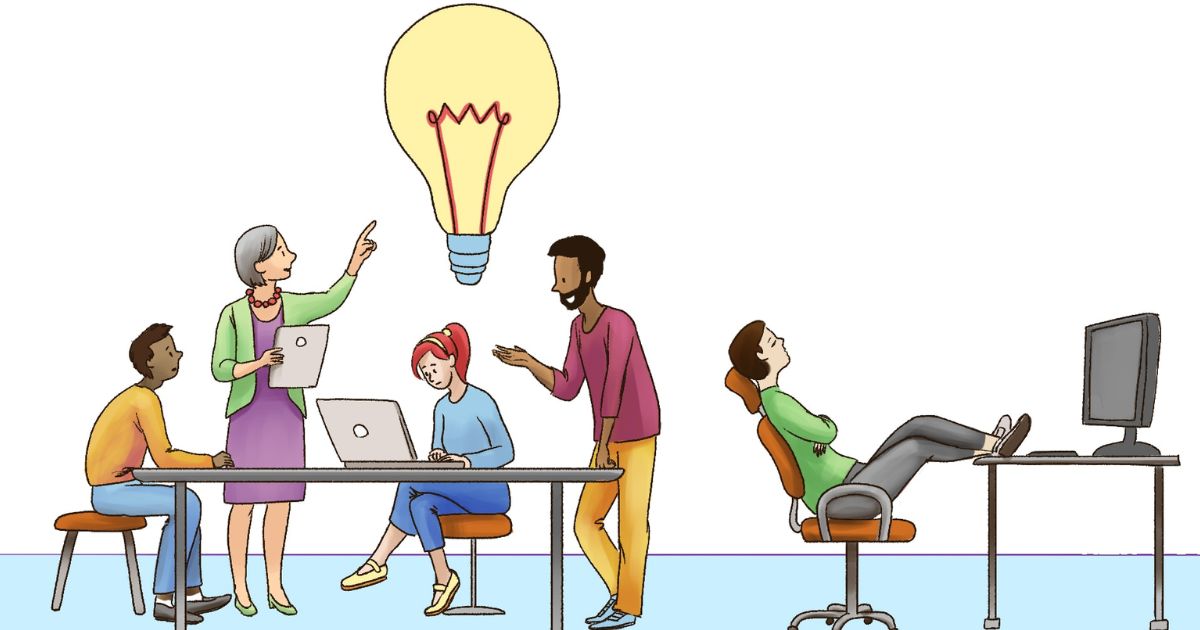Within various professional settings, a prevalent source of discontent arises from individuals who seemingly breeze through assignments without adequately contributing—the widely recognized occurrence termed “social loafing.”
This phenomenon encapsulates the scenario where certain team members consistently do minimal work, leaving others to shoulder the majority of responsibilities.
As a consequence, this imbalance often results in overwhelming feelings of burnout, resentment, and an excessive workload for those diligently carrying the team’s weight.
Unveiling Social Loafing: Understanding the Concept
Social loafing manifests as a scenario wherein individuals exert notably reduced effort when working collectively compared to their output when operating independently.
This conduct tends to surface notably during group endeavors or joint assignments, akin to the familiar school group tasks where a solitary member contributed minimally, leaving the bulk of the workload on others’ shoulders.
Reflecting on a real-life example, a girl encountered ordeal—she outlined covering for colleagues’ deficiencies at work, a predicament resonating with numerous individuals grappling with analogous situations.
It depicts a setting where certain team members consistently extend their work hours to compensate for the lack of effort from others, epitomizing the core essence of social loafing within a professional environment.
The Psychology Behind Social Loafing
Findings from research suggest that the size of a group significantly impacts the overall performance achieved.
Notably, in larger groups, nearly half of the participants tend to demonstrate reduced effort levels.
This disparity emerges primarily because individuals experience a diminished sense of responsibility within a group dynamic, fostering the belief that their personal contribution might not hold substantial importance or recognition amid the collective endeavor.
The studies conducted by Steven J. Karau and Kipling D. Williams further emphasize that an individual’s motivation to actively contribute to a group setting diminishes significantly when they fail to recognize the significance of the shared goal or harbor doubts about their personal impact.
This phenomenon invariably leaves committed team members grappling with feelings of frustration, resentment, and occasional burnout as they shoulder the bulk of the workload, stemming from the lack of effort exerted by others.
Strategies to Address and Mitigate Social Loafing
Clarify Responsibilities
A highly effective method to address social loafing involves guaranteeing a precise and explicit definition of roles and responsibilities among team members.
When task assignments lack clarity, it frequently results in an inequitable distribution of work.
By instituting well-defined and explicit directives, every individual comprehends their specific obligations, thereby minimizing the chance for individuals avoiding their responsibilities to go unnoticed or unaddressed.
Avoid Enabling Loafing Behavior
In an unexpected twist, the efforts of individuals covering for others who are slacking inadvertently contribute to the perpetuation of social loafing.
When dedicated team members excessively make up for the inaction of others, there exists an inadvertent reinforcement that could imply that their own contributions are dispensable.
Striking a delicate equilibrium becomes pivotal, emphasizing the importance of not excessively compensating for those who fail to contribute their fair share.
Offer Opportunities for Contribution
On occasions, individuals who exhibit tendencies of loafing might experience a sense of exclusion or harbor doubts about the impact of their contributions.
To mitigate this, it becomes essential to actively engage and include each team member, affording them the opportunity to assume ownership of their designated tasks.
By creating avenues for active participation and contribution, there exists the potential to stimulate greater involvement from individuals who might otherwise remain disengaged.
Overcoming the Challenges Posed by Social Loafing
In conclusion, social loafing poses a significant challenge in group settings, affecting overall team performance and morale.
However, by fostering a clear understanding of responsibilities, avoiding actions that reinforce loafing behavior, and actively involving all team members, organizations can mitigate this issue and create a more balanced and productive work environment.
Recognizing and addressing social loafing early on is crucial for maintaining a harmonious and efficient team dynamic, ensuring that all members contribute their fair share towards shared goals.





